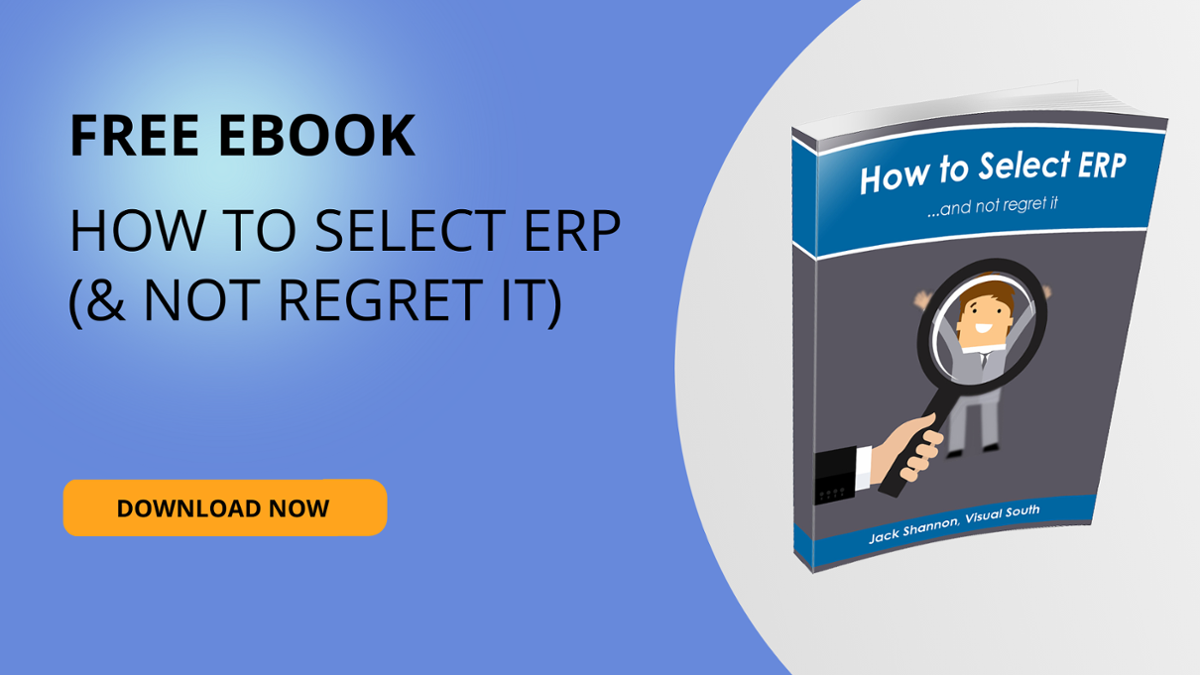If you are in the market for a new enterprise resource planning (ERP) system, don’t just focus on the software’s functionality. Limiting your search criteria to just the ERP is like shopping for a new house and not factoring in the location. Not paying attention to or discounting the importance of other critical factors can narrow your choices, but increase your chance of being unhappy with what you ultimately choose – whether that’s a nice house in a bad location or new ERP that isn’t working for your company. The good news is this can be avoided. In the case of ERP, it comes down to closely evaluating the ERP implementation consultants you’ll be working with just as much as evaluating the ERP itself.
Here is the cold, hard truth about a new ERP: It’s useless when you first buy it. It certainly has potential when it’s purchased, but it’s not yet providing any benefit, it hasn’t made anything easier, and it hasn’t replaced your old system. It’s important to understand and embrace the fact that unimplemented ERP is totally useless.
Why consultant fit must be evaluated early
Most ERP vendors impress you with their sales team up front but keep the implementation team hidden until after the contract is signed. Tim O’Brien notes this is one of the most common pitfalls companies fall into:
“Other vendors present the software… and those people you work with, you never talk to them again.”
Evaluating ERP software without evaluating the consultants is incomplete. You must know:
- Who you’ll actually be working with for the next 6–9 months
- Whether their personality and communication style fit your internal team
- Whether their experience aligns with your business challenges
- Whether they will still be on the project next month
Visual South takes the opposite approach: prospects meet their actual consultants during evaluation. That’s intentional, because consultant fit is not secondary — it’s decisive.
The right ERP implementation consultants turn potential into reality
Because you’re looking at potential, your search for ERP should not be limited to just the functionality. Turning that potential into reality is the job of any ERP consulting firm that assists your team during the implementation. Together, you bring the ERP to life.
Or you don’t. I’ve been in this industry a long time and not every ERP story is a successful one. Failure is an option. In fact, it’s the starting point. Remember, newly purchased ERP does nothing except provide a potential for managing the business better.
Why do implementations fail? The answers I hear and read about usually focus on the software: “The software doesn’t work!”
Of course the software doesn’t work. ERP is pretty much just a tool chest. ERP implementation consultants are the skilled craftsmen who know how to use the tool chest.
Related: How to Choose an ERP Vendor - Before the Demonstrations
It comes down to people, processes, and training
The real reasons behind failed implementations are threefold.
First, there was not an adequate development of new processes and procedures.The role of the ERP implementation consultants is to work closely with the implementation committee to develop new processes and procedures that meet the company’s goals and take full advantage of the functionality the software provides. Think about it this way: The current processes and procedures are based on the tools you currently have to run your business (different software packages that aren’t integrated, spreadsheets, etc.). Since you are changing the tools to an integrated ERP, the processes and procedures need to change. If they don’t, you will never take advantage of the ERP’s potential. It will be limited because of your outdated processes and procedures.
The second issue is not testing the processes and procedures. The first layer of testing is done to prove the new processes and procedures developed by the ERP consultants actually do provide the desired outcome. Once that is proven, the end users can be trained. The second layer of testing is done to prove that the users are indeed trained. Great ERP and great processes and procedures still represent nothing more than potential. The ERP consultants turn potential into reality, and the end users following the processes and procedures created by the consultants, ultimately execute and deliver on the success of the implementation.
The third issue is rooted in human nature: We solve problems with tools we understand. That’s why spreadsheets are such a common solution to a business problem. A person is dealing with an issue, they understand how a spreadsheet works, they apply that knowledge to the problem. And the truth is, that spreadsheet probably made the problem easier to deal with. At a micro level, it works. At a macro level, the company doesn’t have an overall process. It’s a bunch of people with a bunch of spreadsheets. It’s like having a bunch of musicians without sheet music. Individually, they are great at playing their instrument, but together, they can’t play a song. The only way to overcome this is through training. The employees need to become as comfortable with the ERP as they are with spreadsheets. Once they are, they will use the ERP system to solve business problems. What I just described is a change of culture; and that takes training and solid processes and procedures. Where does this guidance come from? The implementation consultants.
Related: What Do You Get With Infor ERP Consulting Services?
Are ERP implementation consultants more important than the software’s functionality?
I could make a strong argument that they are. Implementing without a group of seasoned ERP implementation consultants who have a proven track record of success usually results in leaving a lot of the software’s functionality untapped. Software functionality is only helpful if it is used.
There is one caveat I need to mention, though. The best ERP implementation consultants can’t get great results with software that is not a fit for the company or lacks critical functionality. So functionality is important; it’s just not the only thing.
How to evaluate ERP implementation consultants
Choosing ERP is not a linear process where you pick the software first and the consultants second. The evaluation must be collaborative, not sequential.
If it’s not collaborative, you don’t know if you’re getting the A team, the C team, or potluck.
Here are the key questions to ask to decide if an ERP implementation consultant is the right fit for you:
- Who will we be working with after the sale?
- Can we meet those consultants now, before ERP selection?
- How stable is your implementation team?
- What is your project governance model?
- How do you ensure consultant experience aligns with our priorities?
If you want to learn more about what needs to be considered when choosing a new ERP system, download my eBook How to Select ERP…and not regret it.








